作者:Fairy,ChainCatcher
两大公链创始人正面刚,Crypto Twitter 火药味拉满。
一场围绕“创作者代币”的激烈论战,点燃了加密社区。Base 和 Solana 两大公链创始人罕见亲自下场,围绕 ZORA 和 Pump.fun 两个平台展开正面对峙。
这场交锋究竟因何而起?让我们从头说起。
争议引爆点,Sterling Crispin 的质疑
这场加密圈的“嘴仗”,起火点来自 Del Complex 研究员 Sterling Crispin 对 Zora 的公开质疑。
Zora 是一个 Base 生态链上社交网络平台,它将用户资料和帖子代币化,旨在帮助创作者直接从内容中获利。
但在 Sterling 看来,Zora 不过是老瓶装新酒。他直言,绝大多数在自动做市商(AMM)上发行、流动性极低、价格曲线呈指数型的代币,依然是“换皮的垃圾币”。
在与社区用户的辩论中,他以 Pump.fun 举例:“Pump.fun 上ERC20 代币的结果中位数不是跑输市场,而是直接归零。”
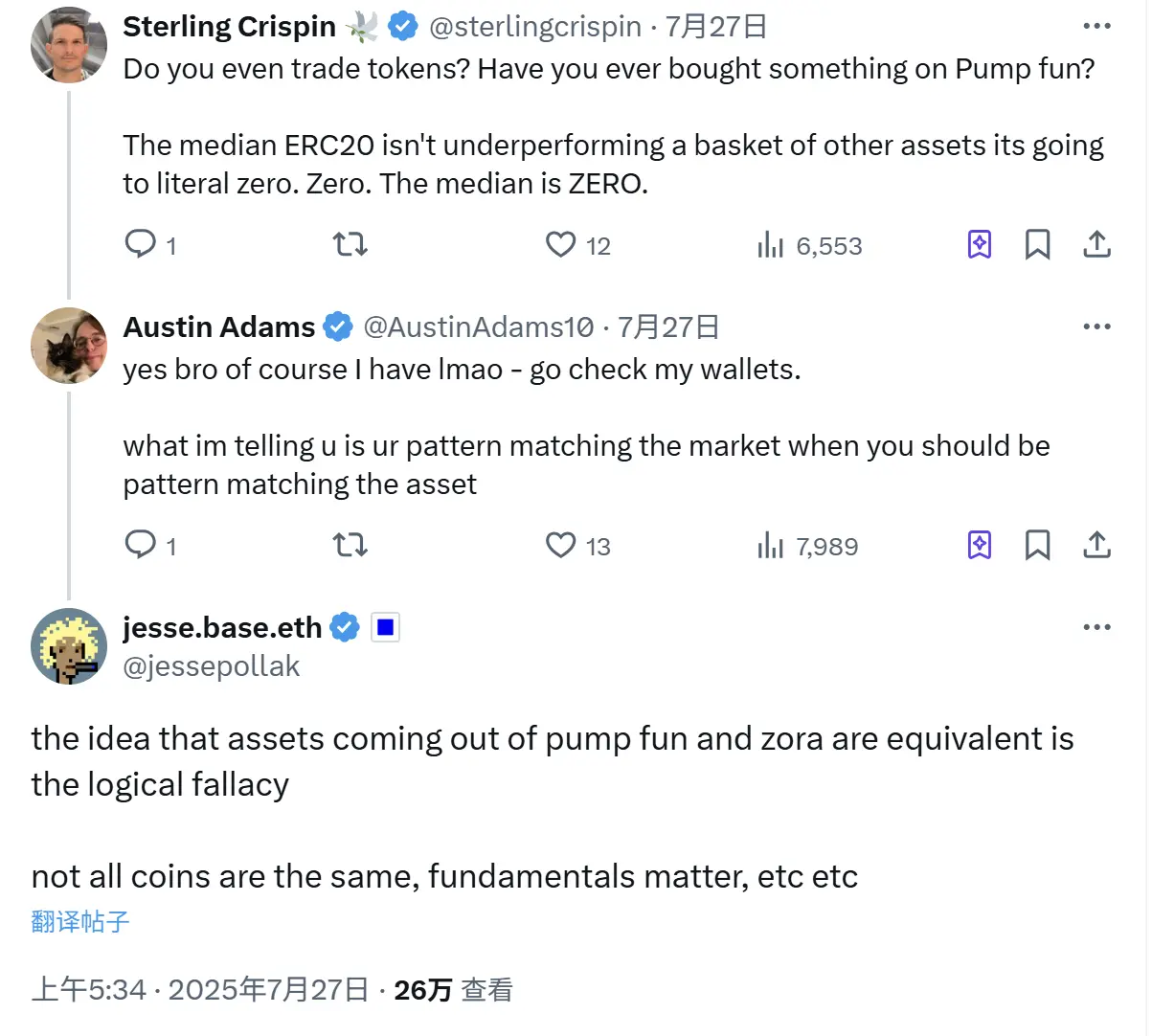
面对这番火力十足的质疑,Base 创始人 Jesse Pollak迅速开启辩护模式。他在 X 平台上表示:“我认为你错了。内容是有价值的,创作者是有价值的。”并进一步强调,“将 Pump.fun 和 Zora 上发行的资产视为等价,本身就是一种逻辑谬误。不是所有代币都一样,基本面很重要。”
不过,Jesse 这一番发言,很快又刺激了另一位大佬的情绪——Solana 创始人 toly。
Solana 创始人火线插话,战火升级
Solana 创始人 toly 迅速介入这场论战,在 X 上转发Jesse 推文并讽刺道:“lol wut?Zora 上的币有任何来自创作者未来现金流的权益吗?”
(注:“lol wut”是英文网络俚语,带着轻微的不屑或故作迷糊的语气,常用于对对方观点表示不认同或觉得荒谬。)
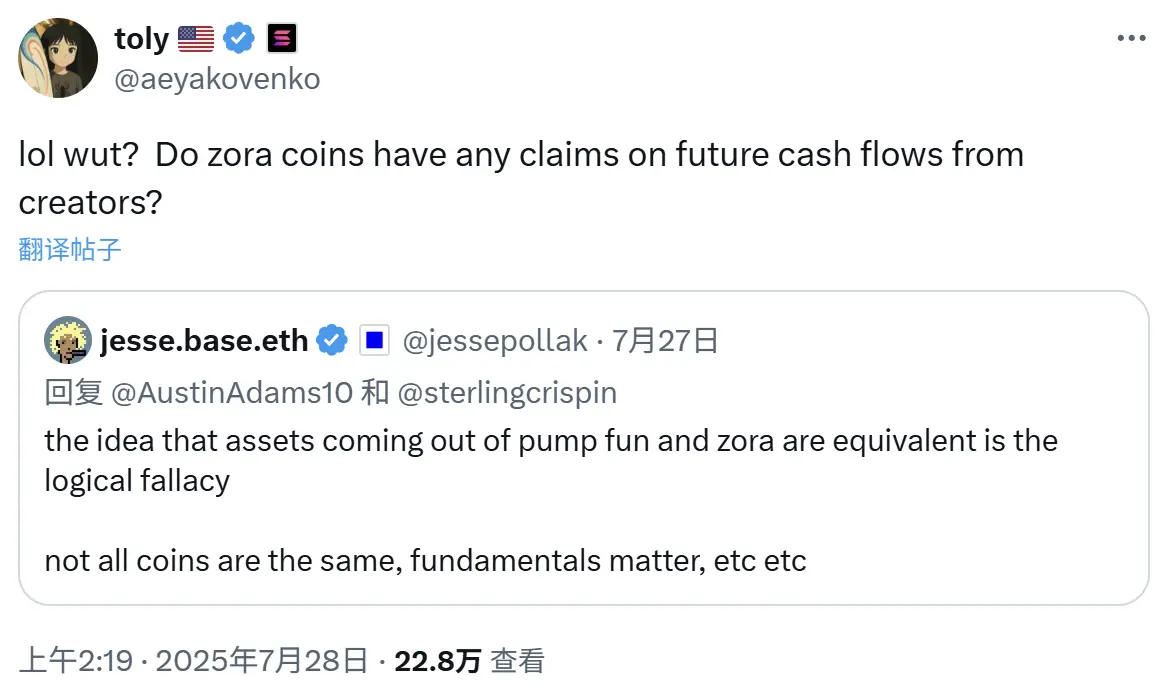
此后,两位创始人的battle正式开始:
第一回合:内容有没有“基本价值”?
Jesse坚定表态:内容本身具有基本价值。
toly追问:怎么证明它有基本价值?代币持有者有权分享内容未来的广告收入吗?
Jesse回应:广告只是一种变现方式。就像一幅画,即使没人为门票买单,它也依然有价值。
toly继续猛攻:照这个逻辑,创作者抛售 Zora 代币对散户来说是好事吗?因为散户可以低于内容的基本价值买入?
Jesse尝试解释:Zora 上的代币有很多种类型,但它们都有一个共同点:都是一个重复、无限的博弈游戏,其中参与者的行为会影响整个系统的运作。
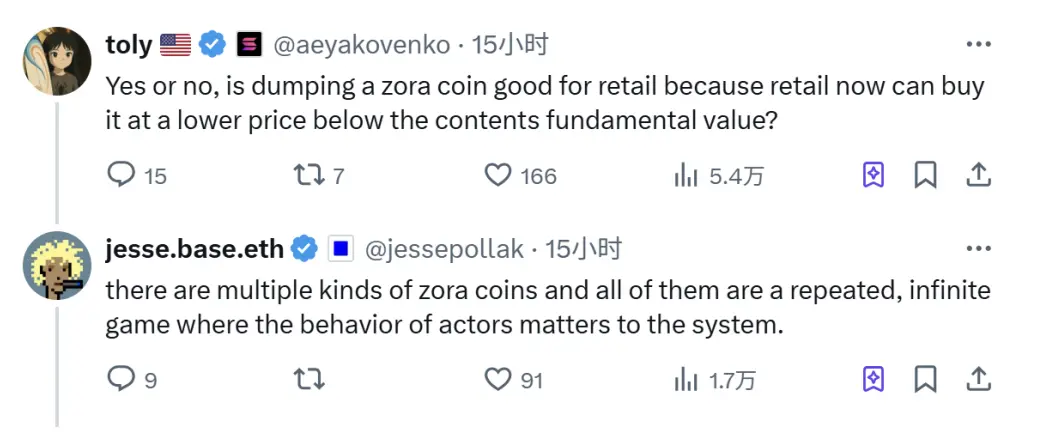
第二回合:争锋无果,互不退让
toly不买账,冷嘲一句:听起来它们的“基本价值”就是零。
Jesse坚持己见:如果你想相信内容的价值是零,那你随意。但我认为内容本身非常有价值,我们可以建立新的体系,把这些价值回馈给数以亿计的创作者。
toly丢下最后一击:那你去说服持币者,让 Coinbase 用利润去扫货那些接近归零的 Zora 代币吧,因为它们“低于内容的基本价值”。
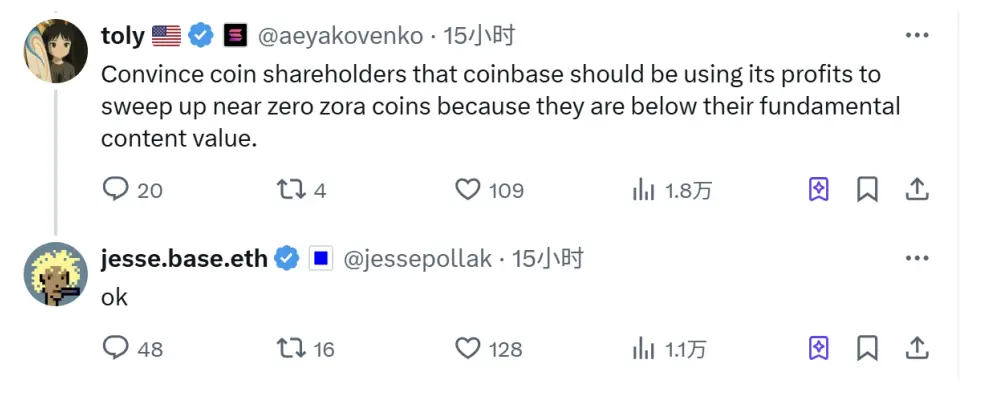
这场对话如同小学生拌嘴,互不服输,最终以 Jesse 一个“OK”草草收场。
有趣的是,toIy 自己过去几年一直在大力吹捧 Solana 生态 meme 币,但这次为了增强说服力,他还补充道:“我多年来一直说,meme币和 NFT 就是数字垃圾,根本没有内在价值。就像手机游戏里的开箱道具一样,而人们每年在手机游戏上的花费高达1500亿美元。”
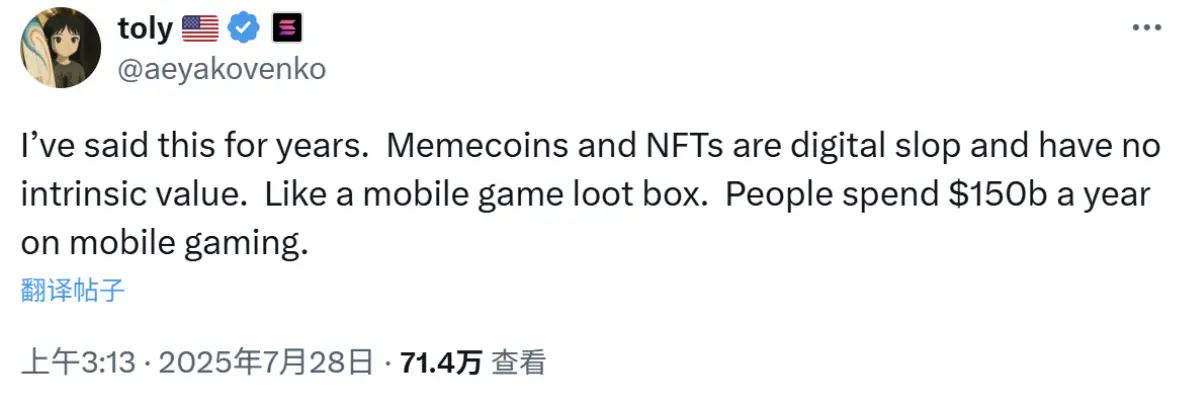
Zora 的“拉盘秀”
这场“嘴仗”的焦点Zora项目,不仅有Base 创始人 Jesse Pollak 的站台,代币 $ZORA 更是在过去一个月暴涨 883%。推动这波行情的,既有 Base App 集成内容代币化功能的利好,也有币安上线 ZORA/USDT 永续合约的强势助攻。
昨日 Zora 平台上创作者数达 21,478 人,其中新创作者达 12,292 人,发行代币数达 50,475 个,均创下历史新高。
然而,链上数据却给出了另一种解读。据链上分析师AI姨分析,现货方面,Coinbase 是该代币交易量最大的平台,24 小时成交额为 8260 万美元;而合约方面,币安 24 小时交易额高达 13.54 亿美元,是现货的 16.4 倍。
其表示,ZORA 仿佛走出了一个独立山寨行情,但链上近期甚至看不到单笔 50 万美元以上的交易记录,疑似是 CEX 里的资金在操盘。
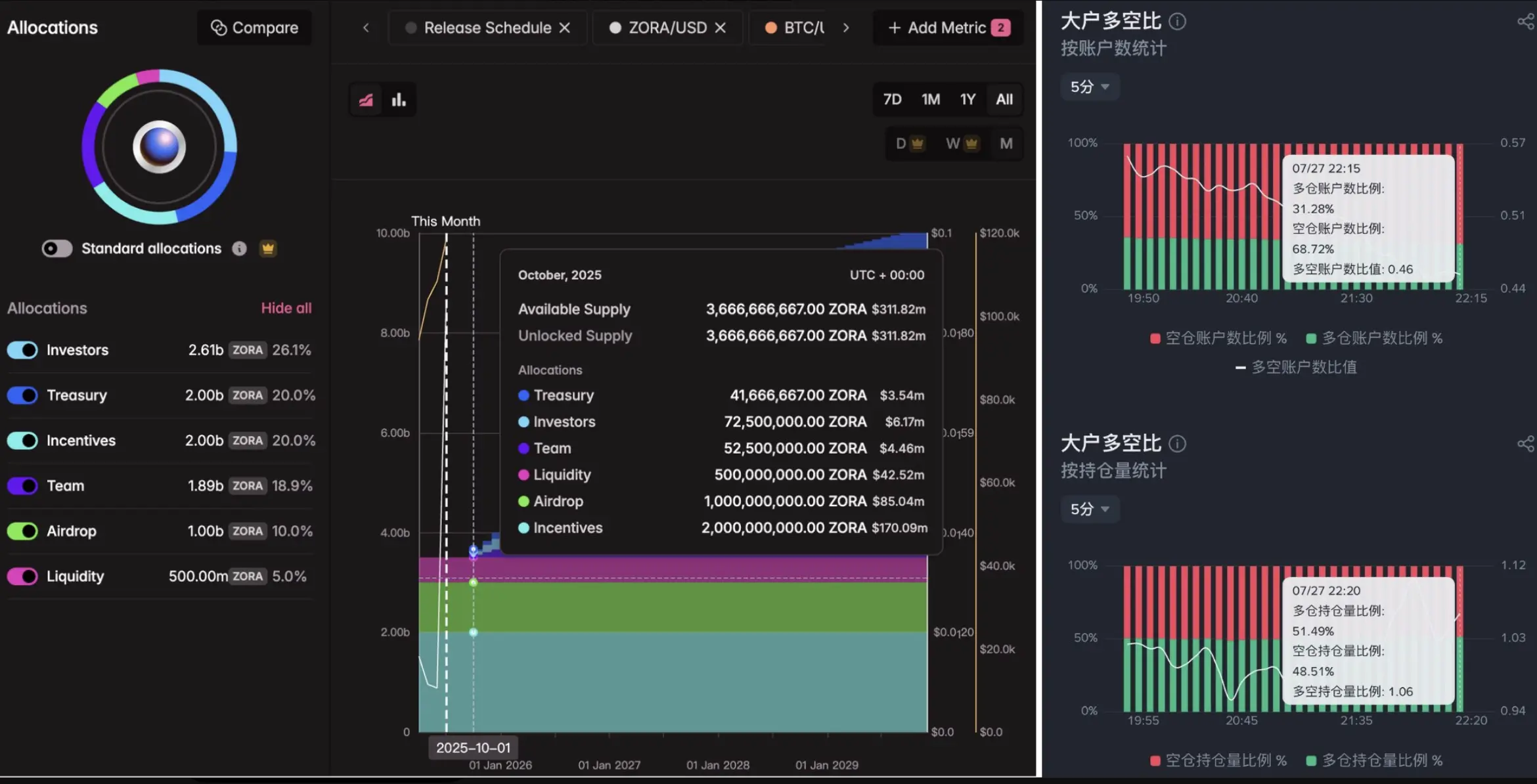
图源:AI姨
Jesse 和 toly 的激烈交锋不仅揭示了加密世界对“创作者代币”本质的深刻分歧,更折射出公链阵营间错综复杂的竞争与理念碰撞。
这场争论无赢家,正如世界对价值定义的争夺,始终在理想与现实、信仰与怀疑之间激烈博弈。
免责声明:本文章仅代表作者个人观点,不代表本平台的立场和观点。本文章仅供信息分享,不构成对任何人的任何投资建议。用户与作者之间的任何争议,与本平台无关。如网页中刊载的文章或图片涉及侵权,请提供相关的权利证明和身份证明发送邮件到support@aicoin.com,本平台相关工作人员将会进行核查。




